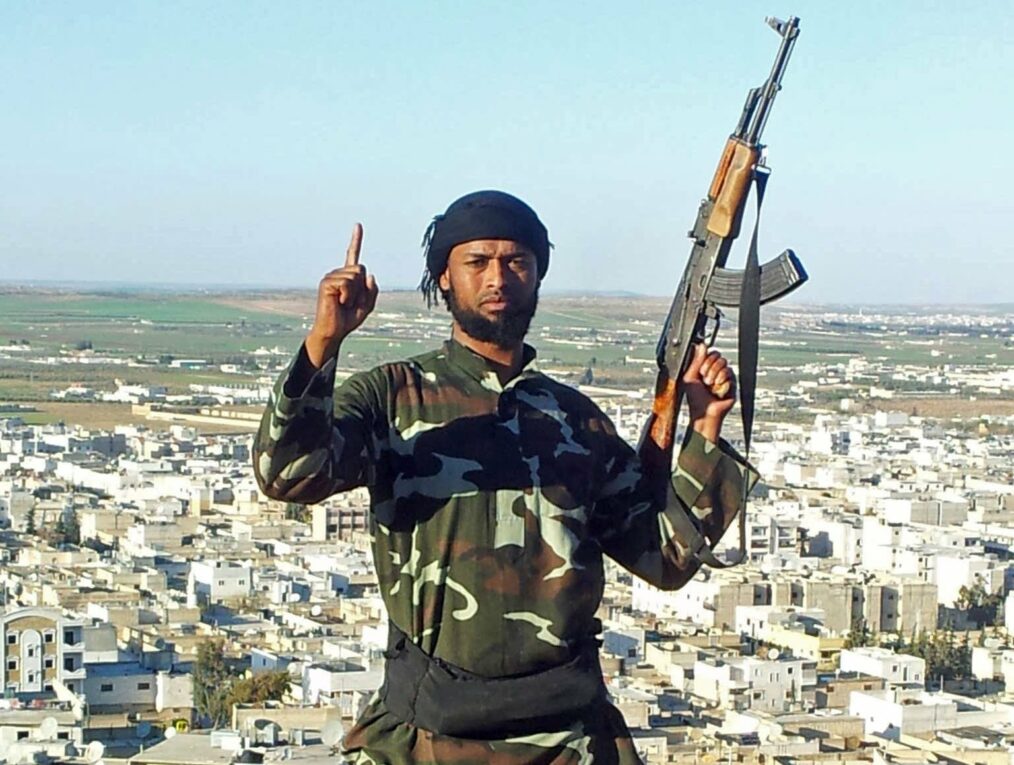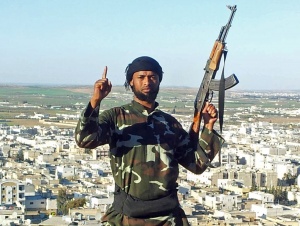
How Minnesota is Attempting to Combat Radicalization

Abdifatah Ahmed, who travelled to join the Islamic State, posted this image on Facebook with the caption “The return of the khilaafa [caliphate] insha allah [God willing].” Image credit: Facebook.
In 2014, 18-year old Abdullahi Yusuf was about to travel internationally when he was stopped at the Minneapolis airport by FBI special agents. Yusuf was confronted by the special agents about his plans to travel to Syria and join the ranks of the Islamic State.
This encounter soon led to nine members of a loosely connected cell being arrested and charged after it was discovered that all of the men had planned to travel and join the declared caliphate. Pre-dating these arrests, several others linked to the nine young men through various community connections had already travelled to join ISIS.
All of these men were connected through the tight-knit community of Somali immigrants in the Minneapolis area. All of the men had been targeted for recruitment in person (at pick-up basketball games at a local mosque) as well as through social media. Abdifatah Ahmed, one of the men who had managed to travel to Syria and was killed fighting for the Islamic State, confirmed in messages to family members that he had begun to socialize with like-minded individuals at these recreational basketball games and was further radicalized by online recruitment.
Judge Michael J. Davis, who was tasked with overseeing the cases, could see that addressing the issue went far beyond the normal criminal justice system utilized in the United States. After thorough research into deradicalization programs across the globe, Judge Davis contacted Daniel Koehler of Germany to help establish a Terrorism Disengagement and Deradicalization Program. Koehler had previous experience in multiple countries, focusing much of his efforts on combating neo-Nazism.
Koehler’s method of deradicalization is unique, as it does not focus on theological re-education or debate. Instead, Koehler suggests that radicalized individuals experience ‘tunnel vision’ which affects how they view life’s problems and potential solutions. Gradually, they begin to believe that all of life’s problems can be solved through violent action- making them increasingly likely to commit terrorist acts.
Koehler believes the key to deradicalization is to introduce alternative, nonviolent solutions to life’s problems. Once a radicalized individual begins considering these options, then other ideas can be introduced to reduce the damage done by radicalization. For example, Koehler suggests introducing hobbies and passions from the individual’s life prior to radicalization. Once these are reintroduced, the individual should arrange contacts with other Muslims who are interested in these activities- ideally ones who are successful and well known.
Not every radicalized individual is eligible for participation in the program. Koehler has developed a psychological profile of individuals for whom he believes the program will be effective. These individuals exhibit specific traits such as being able to disassociate with group-think, and are able to recognize old hobbies and interests as enjoyable.
However, the program does have its limits. First, Koehler believes that each case needs a minimum of four mentors as well as a case coordinator. This staffing plan, while likely justified, is a budgetary concern for those attempting to spread similar programs to new states or cities. Second, the program is relatively new in the United States, resulting in a shortage of data about its successes and failures.
While the program sounds plausible in terms of potential success, gaining widespread acceptance will require supporting data. Third, there is not yet a solution in place to address an individual who begins to relapse into radicalization once they have completed the program.
The program’s staffing issues could potentially be eased by working with universities in the areas it is being implemented in.
These programs could utilize graduate students in the social sciences to ease budgetary restraints. Unfortunately, the lack of data can only be solved with additions of new data; this involves similar programs being spread and studied critically, and there is not much immediate action that can address this issue.
The program in Minnesota may be tested in the near future, as the FBI stated as recently as 2017 that there are multiple open investigations on individuals who want to join the Islamic State. Hopefully it proves a success.
